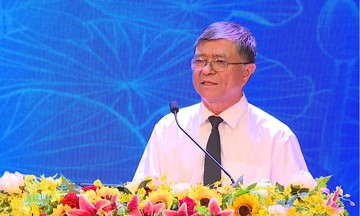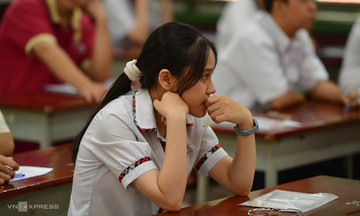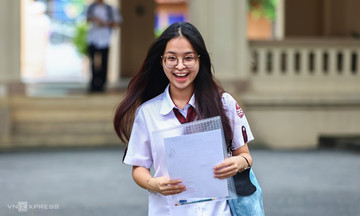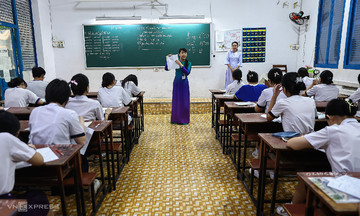Thieu Ngoc Mai, from Hanoi, will graduate with a degree in data science in economics and business this weekend. During her 4 years of study, she scored 9/10 or higher in 35 out of 39 subjects. On a 4.0 scale, the 22-year-old achieved a perfect score.
Mai's result surpassed the previous record of 9.59 set by last year's valedictorian. According to a university representative, Mai has the highest 10-point scale grade point average in NEU's nearly 70-year history.
 |
Thieu Ngoc Mai. Photo courtesy of the subject |
Thieu Ngoc Mai. Photo courtesy of the subject
Mai is a former chemistry student from the High School for the Gifted, Hanoi National University of Education. She initially considered studying pharmacy or biochemistry, aligning with her specialization. However, her mother's work as an economics statistics lecturer sparked her interest, leading her to shift her focus.
In 2021, Mai was accepted into the National Economics University, majoring in data science in economics and business, an English-taught program. To prepare, she read the entire curriculum and textbooks for several core subjects.
Mai maintained this study method throughout her four years. She believed that pre-reading helped her identify difficult English terms, allowing her to look them up in advance and ask more in-depth questions during class. At home, she reviewed the day's lessons and the material again to reduce exam stress.
While she didn't aim to be valedictorian, Mai was determined to study seriously. She understood that without proficiency in knowledge and skills in technology and math-intensive fields like hers, finding a job after graduation could be challenging.
"I wanted to ensure I had a strong foundation for my career. So, I didn't participate in many extracurricular activities, focusing on studying and research", Mai said.
Two of Mai's favorite subjects were data preparation and visualization, where she used programming to build charts, analyze trends, and uncover stories "within the data". The other was machine learning, which required students to use past or collected data to make future predictions. For Mai, the experience in this subject was both useful and "magical".
The English-taught program posed little difficulty for Mai, thanks to her IELTS score of 7.0 from 12th grade. She recognized English as a foundation, enabling her to access research, reports, and international courses. During her 4 years, she contributed to six research projects, three of which were published in international conferences.
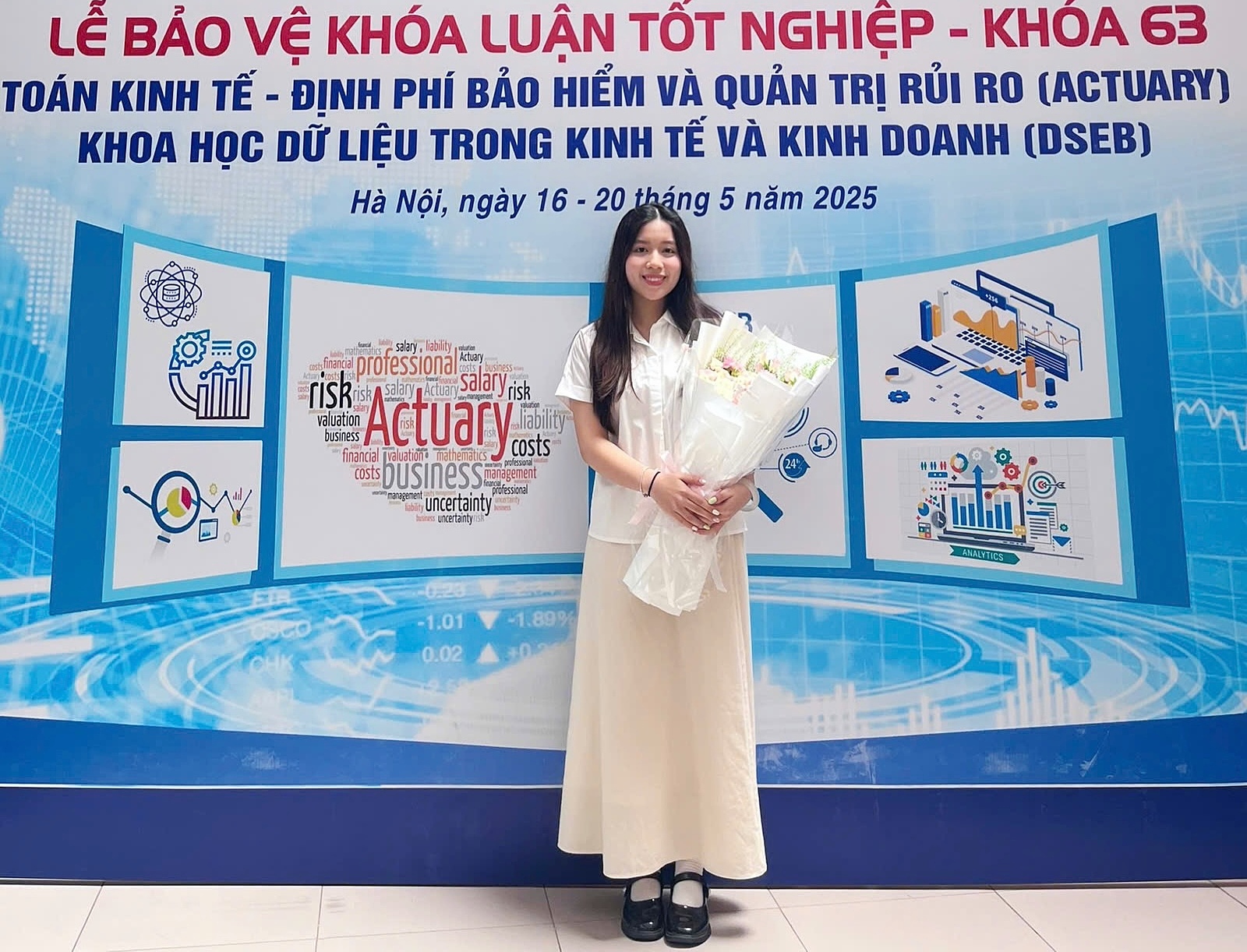 |
Mai at her graduation thesis defense ceremony, 5/2025. Photo courtesy of the subject |
Mai at her graduation thesis defense ceremony, 5/2025. Photo courtesy of the subject
In her third year, Mai participated in Viettel's talent recruitment program, going through application screening, testing (IQ, English, and specialized knowledge), and interviews. After passing, Mai and other students underwent three months of general training (phase 1), followed by three months in various departments (phase 2). Each phase concluded with an exam, eliminating those who didn't meet the requirements.
Mai applied to explore and "test her limits". She found phase 2 the most challenging, as the tasks focused on technical research, better suited for technology and computer science students than those applying technology in economics like her. For the first time, she doubted her abilities, wondering if she could continue.
This motivated Mai to study even harder, despite the pressure, to keep up with everyone and the company's demands. She enrolled in online courses and watched lectures from foreign universities. She also actively sought guidance from senior colleagues for specific tasks. As a result, Mai was among the few students officially recruited at the beginning of her 4th year, with top scores.
For the past year, Mai has been researching AI with a focus on technology application. She said that both the university and the company were supportive, allowing her studies to continue uninterrupted. Fortunately, her final year mainly involved project-based learning, minimizing exam preparation time.
Previously, Mai worked with small datasets and individual models. Her job taught her how to systematize these models and operate them on massive datasets. She also gained soft skills like note-taking, teamwork, and idea development.
Dr. Nguyen Manh The, Head of the Department of Mathematical Economics at the School of Technology, National Economics University, taught Mai three subjects, starting in her first year. Dr. The believes her proactive and meticulous study method was the key to her high grades.
"The way Mai asked questions and interacted with teachers showed she had prepared thoroughly. After each lesson, she could recall and apply the knowledge", he said.
According to Dr. The, besides knowledge, Mai possesses "excellent" programming and data analysis skills, along with self-research abilities and adaptability to new methods. These qualities are highly valued by businesses.
"I believe that with her capabilities, Mai can achieve her career goals, whatever they may be", he said.
Mai plans to continue her current work to gain more knowledge and research skills before pursuing further studies abroad. In the long term, she wants to become a lecturer, using her knowledge and experience to support more students.
According to Mai, not everyone knows what they want from the start. Even with early planning and research, she encountered unexpected challenges. But she believes perseverance and a willingness to take on challenges are crucial.
"You have to try to know if you can succeed. Without action, there will be no results", she said.
Thanh Hang




